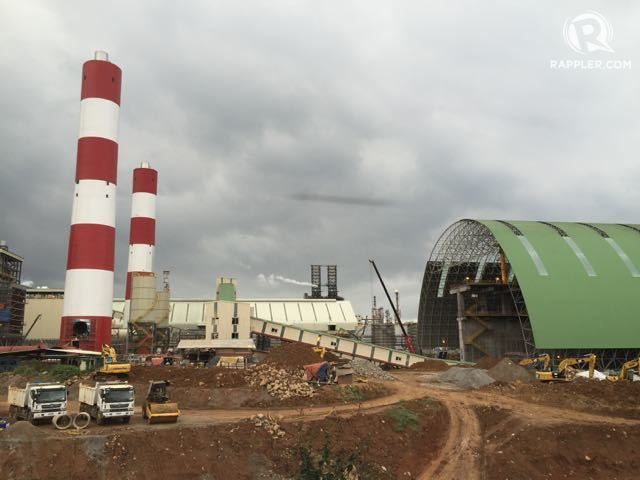SUMMARY
This is AI generated summarization, which may have errors. For context, always refer to the full article.

MANILA, Philippines – After taxes on petroleum products, the administration of President Rodrigo Duterte plans to tax coal, dubbed as the “dirtiest” source of fuel.
Finance Undersecretary Karl Kendrick Chua said this on Thursday, August 10, during a Senate hearing.
Before the Senate ways and means committee, Chua said the proposed taxes on petroleum products would also benefit the environment.
But Senator Joseph Victor Ejercito questioned it: If that’s the case why is the government not prioritizing taxes on coal, considered the most harmful to nature?
Chua, in response, said the DOF would “soon” propose taxes on coal and carbon sources.
“In fact, coal, carbon taxation will be included in the proposed [tax reform] package 5, which will be presented soon,” Chua said, adding that the fifth package will also revisit taxes on health, environment, and mining.
But Ejercito asked: “Why not the first and second? I think coal is one of the dirtiest because everytime it runs, it emits elements in the atmosphere.”
Chua explained it is difficult to rush it. More studies have to be done, he said, because it would be the first time the government would do it.
On the other hand, he said taxes on oil products have already been done and have been left untouched for the past 20 years.
At present, the House of Representatives has already approved Package 1, which seeks to lower income tax in exchange for higher taxes on petroleum, automobiles, and sugar-sweetened beverages. The measure remains pending in the Senate.
Some senators have expressed concern about the possible price increases on basic commodities because of higher fuel prices.
Package 2 eyes lowering of corporate income tax and changing fiscal incentives to remove perks from sectors that have long been benefitting from it through the years.
Package 3 seeks to review property valuation while Package 4 focuses on capital income taxation such as dividends, interest income, and capital gains, among others.
Mindanao
In discussing coal, Chua said the government also has to balance the country’s need for renewable energy and cheap sources, especially in Mindanao, which is highly reliant on fossil fuels.
“It’s the first time we are taxing coal. While on automobile, fuel, we thought we were ready. The other reason is, Mindanao is relying on coal. We need to balance reliable cheap sources without abruptly affecting prices,” Chua said.
Hontiveros pointed out that while Mindanao relies on several coal power plants, it is also very rich in natural sources for renewable energy – something that Senate energy committee chair Sherwin Gatchalian agreed to.
“Yes, Mindanao is largely dependent at the moment but the region is very rich in underdeveloped renewable resources, including hydro,” she said. – Rappler.com
Add a comment
How does this make you feel?
There are no comments yet. Add your comment to start the conversation.